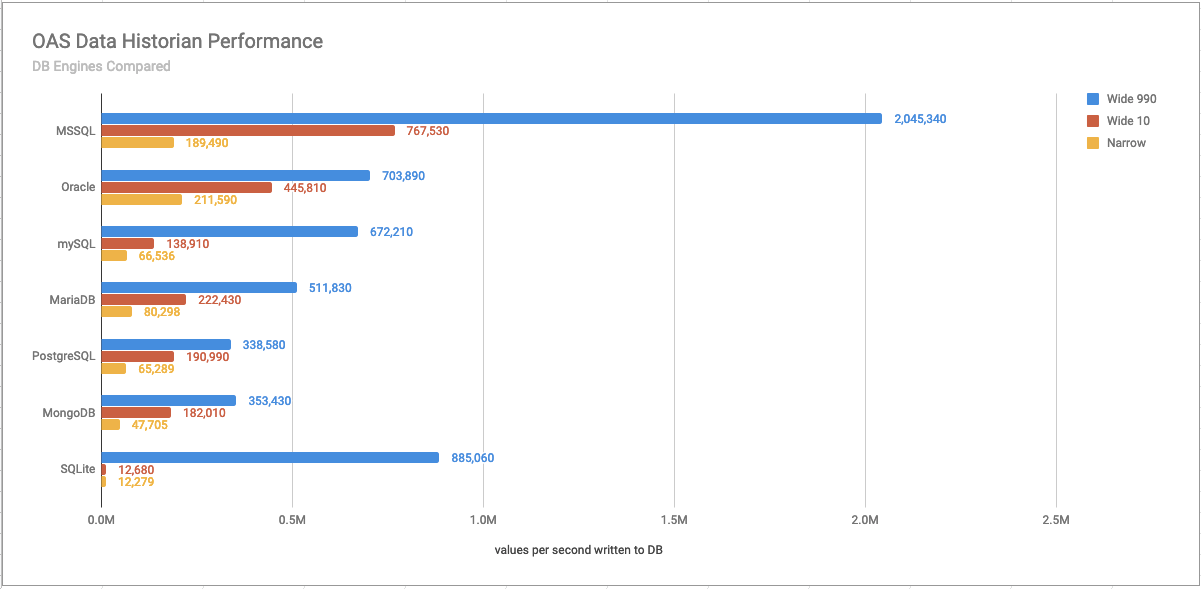DB Engines Compared
In an effort to help you decide which database engine to choose in your implementation, and how you can boost performance with an existing OAS configuration, we’ve performed extensive testing. On each of the database engines listed, we configured our Data Historian to log Tag Data in 3 different ways.
Narrow
In this configuration, a single value is written per table along with a timestamp for the logged value. This means each OAS Tag logged will result in a single database table.
Wide 10
Each table contains 10 OAS Tags arranged in a single row for each given timestamp. In this test we logged 10 OAS Tag values in a single table.
Wide 990
Using the same configuration as Wide 10, but logging 990 OAS Tags per timestamp.

Conclusions
From our testing, we’ve determined that the fastest overall DB engine is Microsoft SQL Server, even though it performed only slightly slower in the Narrow table test than the next fastest engine Oracle. But because of its dramatically superior performance in all other tests (>2M values per second!), we recommend using MS SQL Server for data logging where possible. Oracle and mySQL are the next fastest engines, and have similar performance numbers to each other, but are also extremely quick when using a Wide logging format.
Efficiency is boosted with logging multiple values per table in the Wide formats, and the fastest speeds can be achieved when increasing the number of values per record. Yet, because we log to an open format, you can still perform post-processing or data archiving that transforms this wide format into a normalized configuration for your own internal usage, while still getting the benefits of high-speed logging.



